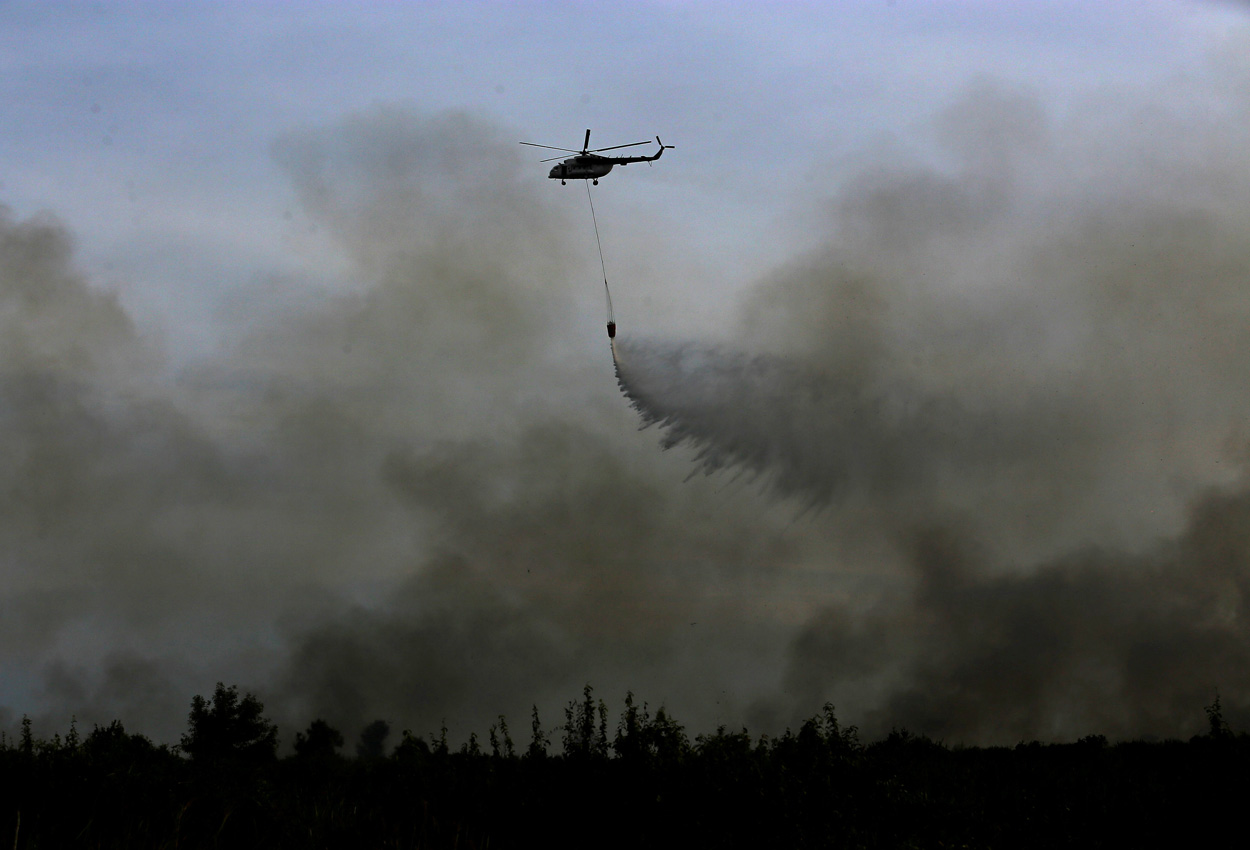Indonesia’s disaster management agency (BNPB) has deployed a fleet of 12 aircraft, including water- bombers and planes for cloud-seeding operations, in six fire-prone provinces before the dry season hits its peak next month to prevent a repeat of last year’s haze crisis.
BNPB spokesman Sutopo Purwo Nugroho yesterday said September is usually the month with the highest number of hot spots from forest and plantation fires, adding that the agency is focusing on mitigation operations in six provinces, including Riau and West Kalimantan.
“The period of high number of hot spots in Sumatra and Kalimantan runs from August to October, with the peak in September,” Dr Sutopo said.
Riau, the Indonesian province second-closest to Singapore after the Riau Islands province where Batam is located, West Kalimantan and four other provinces declared a state of emergency several months ago, in a move to allow the central government to help and put in national resources to contain the fires early. The other four provinces are Jambi, South Sumatra, Central Kalimantan and South Kalimantan.
Last year, several provinces were late to declare an emergency, which caused the fires to spread uncontrollably and become very difficult to handle when help from Jakarta finally arrived.
Millions of people in Indonesia and neighbouring countries were affected when thick smoke from the fires blanketed many parts of the region.
Mr Sugarin, head of the Pekanbaru branch of the meteorology, climatology and geophysics agency, told The Straits Times that more favourable weather this year helped to lessen the severity. He pointed out that the number of hot spots in Sumatra this year has so far been less than a quarter of that last year.
“This year we have the so-called wet-dry season, while last year we had El Nino,” Mr Sugarin said, referring to the weather phenomenon which led to prolonged hot and dry weather in the region last year.
That there are fewer hot spots this year is also partly due to preventive measures put in place by the government and increased law enforcement, he noted.
Indonesia has revoked or suspended the land-clearing licences of 27 companies in connection with the land and forest fires that led to the haze crisis last year.
But still some culprits have remained and continued to defy the law, cultivating their land using the cheapest method, which is harmful to the environment, Professor Bambang Hero Saharjo, head of the forest and land fire laboratory at the Bogor Agriculture Institute, told The Straits Times.
“August and September are the best time to clear the land by burning to make way for new plantations. In October, rains will come and they will start planting,” Prof Bambang said. “They are cutting costs at the expense of the environment.”

This article was first published on August 24, 2016.
Get a copy of The Straits Times or go to straitstimes.com for more stories.





